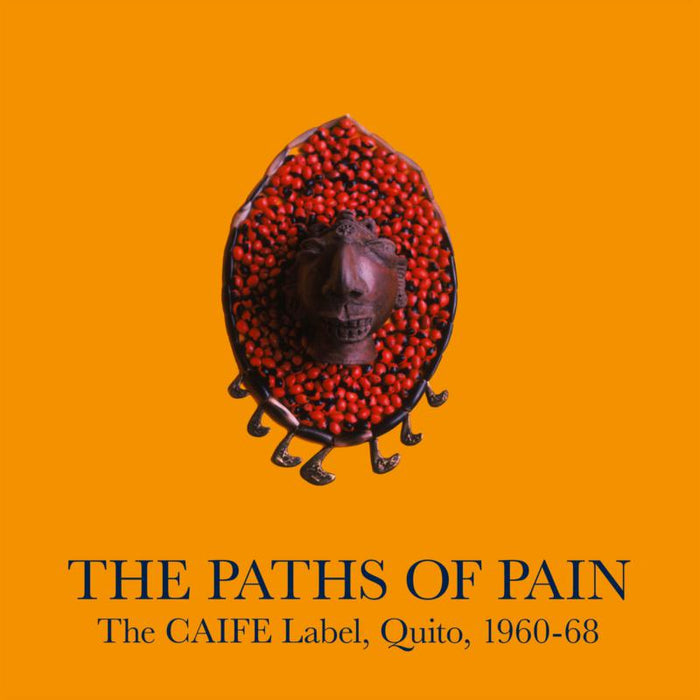Description
African musicians seem to have an unquenchable fascination for the music of Latin America, especially Cuba. And why not? Much of what makes modern Latin music so irresistible came from Africa in the first place. When the first waves of African rhythms, reconstituted in the Caribbean, returned home on radios and records, Africans—especially in West and central Africa—received them with great enthusiasm.
Staid dance bands that replicated European music soon began to swing as Caribbean accents settled in their rhythm sections. By the 1950s Africa had produced its own Calypsonians, and more than one African musician changed his name to give it a Latin flavour. Sierra Leone's Gerald Pine, for example, became Geraldo Pino, and Congo-Brazzaville's Jean Serge Essous called himself Jerry Lopez for a time. Some even composed songs in Spanish, while others wrote nonsense lyrics that only sounded like the real thing. There is no better evidence of this push-me-pull-you, back-and-forthing than the Afro-Latin compilation we have here.
As the heady, post-independence sixties yielded to seventies' realism, no band mixed local and Latin styles more successfully than Orchestre Baobab and its leader Balla Sidibe. The mesmerizing On Verra Ca finds Baobab leaning in the direction of the stuttering Mbalax sound that Youssou N'Dour carried to great popularity. Other Senegalese bands followed the trend, like the Rio Band and Orchestre N'Guewel, whose version of the Cuban standard Mi Guajiro is drawn from the LP Xadim (a presentation of 'Salsa Musique', according to its cover — although most of the album is devoted to Mbalax). Senegal's Laba Sosseh — born in Gambia like his compatriot Amara Toure — embraced Afro-Cuban sounds wholeheartedly, styling himself as a salsa singer after his hero Johnny Pacheco. Sosseh went on to record in New York with Monguito (for Sacodis), and for Roberto Torres' SAR label alongside other Afro-Cuban legends like Alfredo Valdes and Alfredo 'Chocolate' Armenteros. Here his Guantanamo offers an upbeat take from long before that wretched corner of Cuba became synonymous with US mistreatment of war prisoners.
Moving south and east along the coast, we eventually reach the sliver of West Africa known as Benin. Sandwiched between the musical powerhouses Ghana and Nigeria, Benin's artists often struggle to be heard. Still, that didn't keep the singer Gnonnas Pedro from trying. Leading a group called the Panchos throughout the sixties, Pedro sang in nearly every pop style imaginable, but he seems especially at home in an Afro-Cuban embrace, as you will hear on the 1977 recording Adigbedoto. Our closing track also comes from Benin, a 1976 recording by the celebrated Orchestre Poly Rythmo — though the singer, Pierre Tchana, hails from Cameroun. Quiero Wapacha features another Camerounian singer, Charles Lembe.
Speaking of powerhouses, one of the great impediments — and inspirations — for African pop musicians in the sixties and seventies was the juggernaut that was the Congolese rumba. It was simply the most exquisite blending of African and Afro-Cuban ingredients to emerge anywhere in the second half of the twentieth century. Fans and bands across the continent fell under the spell of this sound that became known as Congo music.
Once in a while, however, Congolese musicians went for something pretty much straight from their Afro-Cuban bag. Listen to Bantous Pachanga from Brazzaville's Orchestre Bantous, recorded around 1960. That's their arch Latinophile Jean Serge Essous on vocals and reed flute.
Across the Congo River in Leopoldville (today's Kinshasa) the legendary OK Jazz — which, incidentally, Essous helped to start — recorded any number of Afro-Cuban inspired sides: Micorrason — Mi Corazon, my heart, my love — is one of the band's earliest songs, recorded soon after its formation in 1956. All three of the group's songs on this album feature the work of founding member and lead guitarist Luambo 'Franco', who led the band to preeminence for over thirty years.
Another of this compilation's Latin enthusiasts from the two Congos, Joseph Kabasele is often considered the father of Congo music itself. A terrific singer, he formed the genre's first great band, African Jazz, in the early fifties. When the group broke up a decade later, Kabasele eventually made his way to Paris. Back in 1961 he had introduced the fledgling saxophonist Manu Dibango of Cameroun into African Jazz, and so once in Paris he looked up the now very accomplished multi-instrumentalist.
Many years later, Dibango recalled to me that in Paris 'there was a Cuban flutist, fantastic Don Gonzalo, fantastic arranger... arranging charanga with strings. Beautiful!... And the idea came to ask him to do some arrangements with African music... And that was one of my thrills in music, this writing with Cuban music and African music here in Paris. It's a pity that we didn't continue this type of experimentation.' The three, with Essous occasionally sitting in, recorded a number of songs in 1966 and '67, including Africa Boogaloo, under the name African Team.
All the recordings presented here flow from an unparalleled period of exuberance and creativity. World War II had ended. Independence from colonial rulers had been, or was about to be, won. The blight of homegrown tyranny had yet to descend on the land. It was Africa's moment, optimistic and free! You can hear it in the music.
-Gary Stewart, author of Rumba On The River.


















